'Conservative' or 'Tory': What's in a name?
- Published
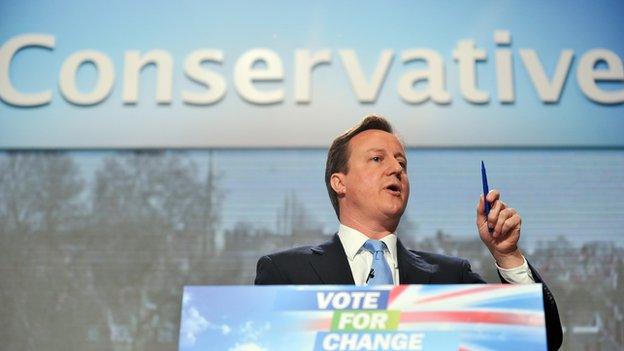
"Conservative" or "Tory"? The descriptions have become interchangeable over time.
"Tory" is especially beloved of journalists in search of a short word for a headline or simply an alternative to repeating the word "Conservative". "Tory" is also most likely to be the word used when referring colloquially to the party.
So synonymous have the terms become, most members of the party would be hard-pressed to explain the precise history and etymology of the nickname, which actually pre-dates "Conservative" by more than a century (more of the history later).
According to the BBC's own style guide, "Conservative" should be used in the first instance but "Tory" is acceptable for later references.
And many Conservatives are quite happy to be known as Tories and refer to themselves as such.
"I use them interchangeably and I don't mind if other people do. If people want to call me a Tory that's fine," says Dr Sarah Wollaston, the Conservative candidate for Totnes.
"These days it doesn't matter which you use. People have forgotten the history," says Peter Bone, seeking re-election in Wellingborough, adding "Tory is quite handy if you're tweeting."
Some party members actually prefer the nickname, such as Robin Wight, founder of the advertising agency, WCRS.
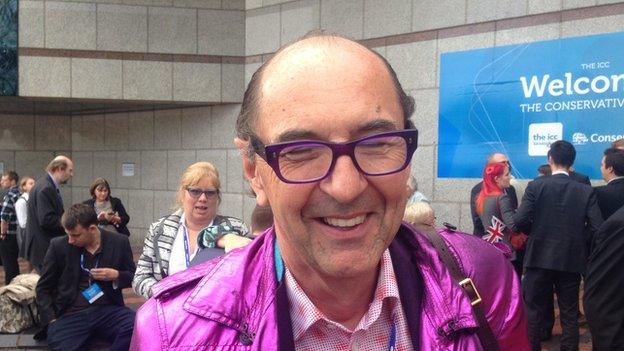
Robin Wight, happy to be called a Tory
"I call myself a Tory. But I don't mind whether it's a Tory or a Conservative," he said.
Insiders and loyalists may use both terms neutrally but there is a definite preference among the party's adversaries for the shorter, pithier description.
"I use "Tory" and "Tories" to describe our opponents because to me, those terms place them somewhere backward-looking, negative and reactionary," says former Labour MP and cabinet minister, David Blunkett.
"'Conservative' sounds more positive; it's about preserving and protecting. 'Tory' is shorter and easier to say and it has more negative connotations, which is why we use it," he adds.
"Same old Tories", "Tory cuts" "Tory-led coalition": search any of Labour's attack speeches and you'll find a smattering of such terms.
A glance through the former deputy prime minister John Prescott's 2000 Labour conference speech - his traditional rabble-rouser - reveals: "Tory spending cuts", "Tory froth", "Tory years" and the rhetorical flourish "Tories? Tories?", presumably designed to get the audience jeering.
"Come to think of it," says Dr Wollaston, "When people call me a Tory they're often doing so pejoratively: if they're being nice they're more likely to call me a Conservative".
"You may hear the word 'Tory' and think of someone with a Scouse accent saying it, perhaps even with the word 'scum' attached," jokes another Conservative politician, Bernard Jenkin, adding, "It depends on the emotion attached to the words. It's really not that important."
Given some of the negative connotations attached to "Tory", it's perhaps not surprising that party officials prefer the official, more neutral, name. Broadcasters are used to receiving emails from party HQ, asking them to refer to the party as Conservative in the first instance, especially at election time.

History
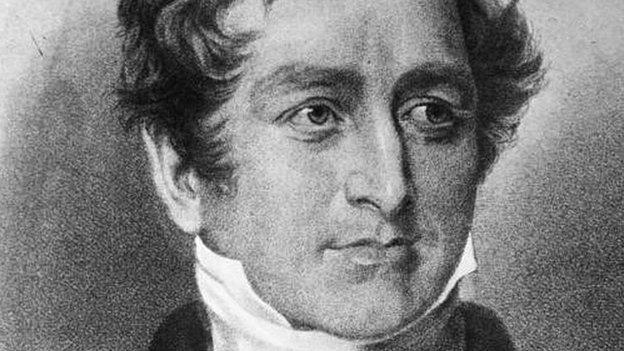
The term "Conservative" did not emerge until the 1830s during the leadership of Sir Robert Peel
The political term "Tory" dates back to the "Exclusion Crisis" which took place between 1679 and 1681 during the reign of Charles II.
Two political factions had emerged in Parliament: those who wanted to exclude Charles' brother James, the Duke of York, from succeeding the king because he was a Roman Catholic (the Whigs) and those who supported his rights to the throne (the Tories). The Tory campaign prevailed and James became the Stuart king James II.
Both terms were originally pejorative:- Whig came from an old word for yokel or "country bumpkin"; Tory is derived from the Irish Gaelic word tóraidhe, meaning outlaw.
"Simplistically you could say Tories were Cavaliers and Whigs were Roundheads," explains Dr David Seawright from Leeds University, a Conservative Party expert.
Although Tories began by supporting a Catholic heir's rights to succession, they went on to be associated with Anglicanism as well as strong monarchist and patriotic sympathies.
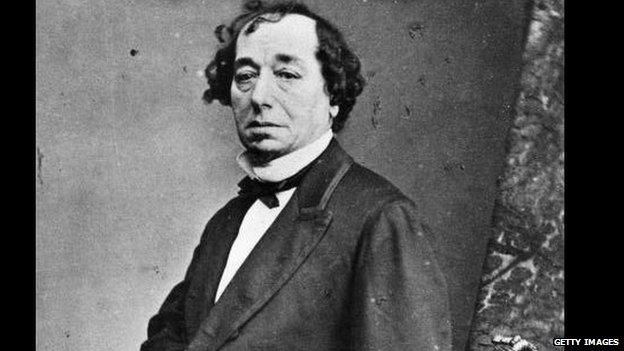
Benjamin Disraeli, the so-called "one-nation" Prime Minister, embraced the term Tory
"Patriotism is the first, and most deeply rooted, element of the party's character," writes the party's official historian, Lord Lexden, in a 2014 guide.
The term "Conservative" first started to be used widely in the 1830s under the leadership of Sir Robert Peel. He re-interpreted the key elements of the old Tory tradition, effectively modernising the party under the banner of support for social reform and free trade.
While the Tory party under the Duke of Wellington had been strongly opposed to the Reform Bill which extended voting rights, Peel accepted it, declaring his support in the Tamworth Manifesto of 1834.
Despite the adoption of a new name, "Tory" endured and the two terms became interchangeable, with the older name appearing in official publications such as Lord Hailsham's "Toryism and Tomorrow" lecture of 1957.
In the early 20th century, both terms were briefly eclipsed by a new name, "Unionist", to reflect the party's resistance to Irish Home Rule. In the latter part of the century, "Conservative" emerged as the official name.
"Tory" was also used during the American War of Independence to refer to colonists who were loyal to the British monarchy. The term has also endured in Canada where centre-right Conservatives are known as Tories.

Dictionary definitions
Tory:
1. In the 17th Century, one of the dispossessed Irish, who became outlaws, subsisting by plundering and killing the English settlers and soldiers; a bog-trotter, a rapparee; later, often applied to any Irish Papist or Royalist in arms.
2. With capital T: A nickname given 1679-80 by the Exclusioners to those who opposed the exclusion of James, Duke of York (a Roman Catholic) from the succession to the Crown.
3. Hence, from 1689, the name of one of the two great parliamentary and political parties in England, and (at length) in Great Britain.
Conservative:
Usually with capital initial: a supporter or member of the Conservative Party of Great Britain, or a similar party elsewhere; a Tory. In early use: one who espoused the policies of Sir Robert Peel.
Source: Oxford English Dictionary

The evolutionary way in which the party has been described over time reflects what many historians see as its most essential and enduring feature: adaptability.
Unlike Labour, the Conservative Party was never officially founded and did not even have a written constitution until 1998.
Lord Lexden says flexibility in the face of change has been a strength.
"As Britain evolved from monarchical government to democracy and from intense disputes with a large religious element to purely secular controversies, the Party constantly adapted to change and frequently led the process of change. That has been the secret of its success," he writes.
Activists at the 2014 Conservative Party conference in Birmingham did not seem to mind being called Conservatives or Tories.
Rebecca Chappell, Windsor, 25

"I feel very proud to be a Tory or a Conservative. I'm happy to be called both."
Alireza Versi, Milton Keynes, 18
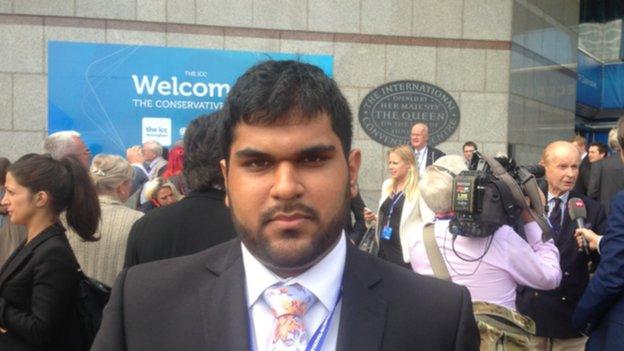
"I would describe myself as a Peelite. If you take Sir Robert Peel, he was a Tory and a Conservative. It doesn't worry me as long as the party has policies that bring a betterment to society, to Britain, the name doesn't matter."
Amy Gray, prospective parliamentary candidate in Hackney North and Stoke Newington
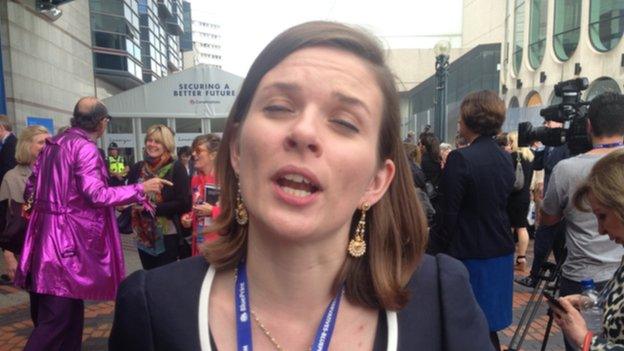
"I have reclaimed that term as a badge of pride! I am proud to be a Tory!"
Councillor Jaswant Singh Birdi, Coventry
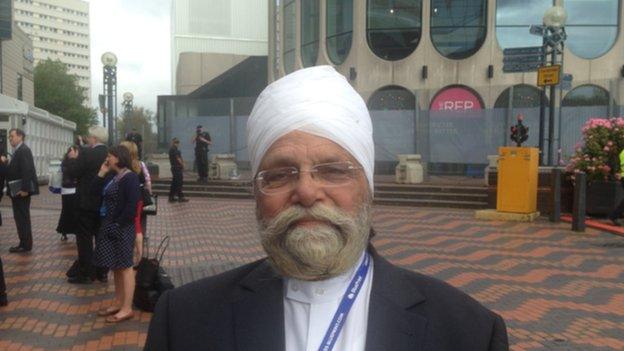
"Tory is just a short form of that (Conservative) but I don't think we would want to use it in our literature."
Denise Dutton and Mavis Hearn, Sefton Central
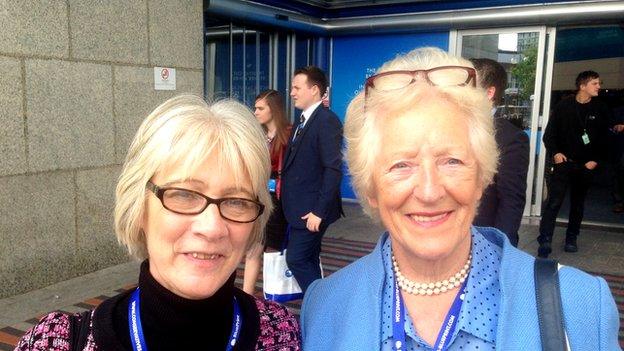
Denise: "What's the difference? I say a Tory is a Conservative and a Conservative is a Tory."
Mavis: "I do too actually, when we are on the street canvassing and things, we are just Tories or Conservatives."